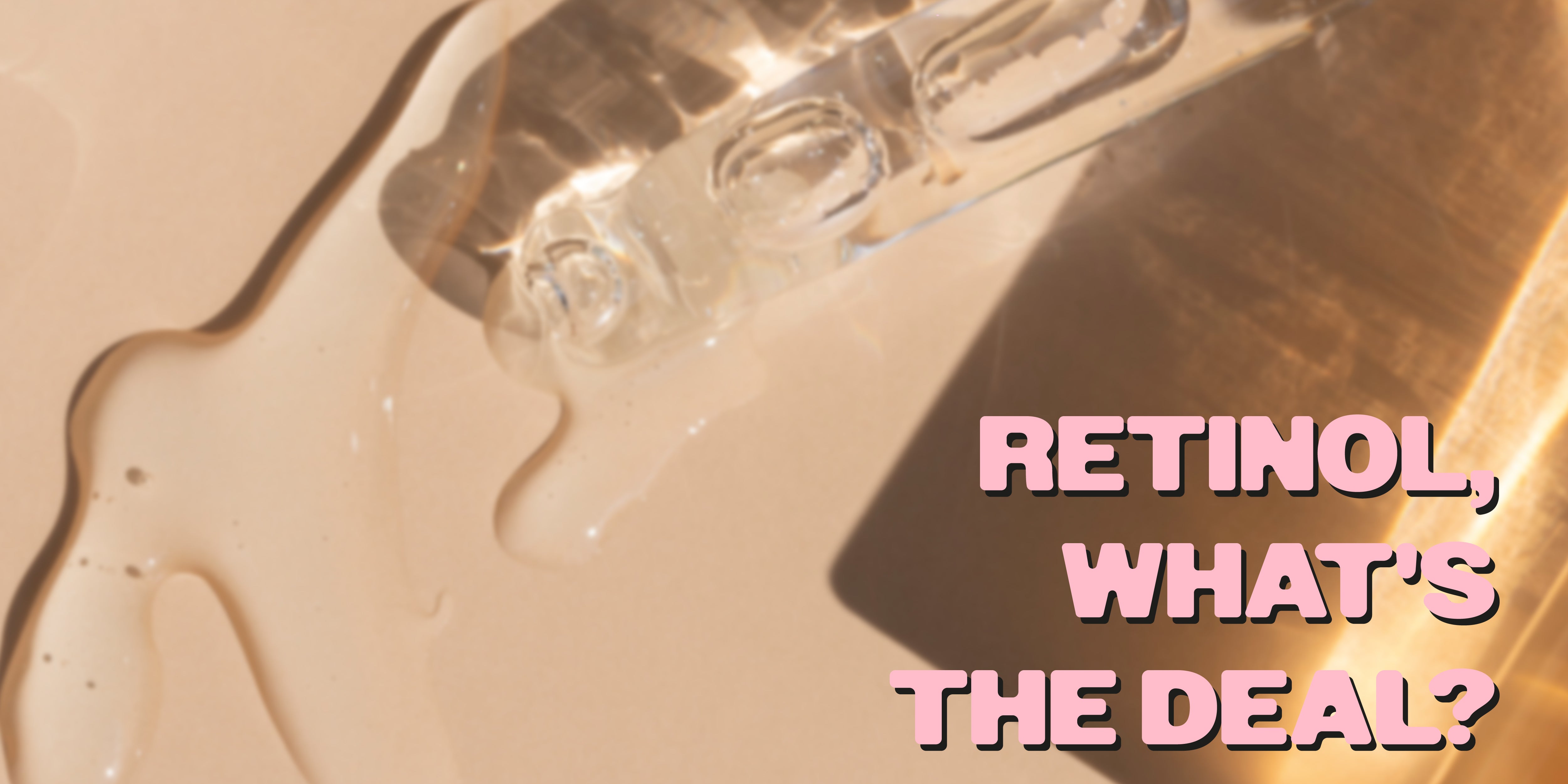Retinol, retinoid - it’s the skincare buzzword of the moment, but half the time no one ever actually explains what it is or what it does. We’re breaking it down for you - what is retinol, what does it do and should you be using it in your skincare routine?
What is retinol?
Retinol is a type of retinoid, which comes from vitamin A. It’s an antioxidant, and is usually described as having anti-aging benefits. You can get pure retinoic acid from a dermatologist, which is also called tretinoin. This form of retinol is the purest and most effective, but also comes with the greatest side effects.
What does retinol do?
Retinol may be marketed as an anti-aging ingredient a lot of the time, but it actually has a whole host of amazing benefits for your skin.
Improved texture: We’re talking plump and peachy, thanks to retinol boosting collagen production and cell turnover. This also helps with any pesky fine line and wrinkles!
Fades hyperpigmentation: Over time, retinol works to fade any brown spots and patches due to hyperpigmentation.
Fights acne: Most acne is caused by overactive oil glands which leads to clogged pores, but retinol reduces how much oil your skin produces.That means clearer skin and reduced breakouts.
What are the side effects of retinol?
Sounding too good to be true? With an ingredient this powerful, there are a few side effects.
The big ones are peeling skin, dryness and irritation - especially if you have sensitive skin. Anyone with a condition like eczema or rosacea should be extra careful, as retinol could cause you to have a flare.
Also, if you’re pregnant, trying to conceive or breastfeeding, retinol is a big no-no.
How can I avoid retinol’s side effects?
As with many things in life - slow and steady.
By gradually introducing retinol to your skincare routine, starting with once a week, your skin has a chance to get used to it. Start with once a week, then slowly build up to every other day.
When introducing retinol to your routine, avoid using any other acids or exfoliants, including vitamin C.
Where should I use retinol in my skincare routine?
When starting out with retinol, it’s important to keep things simple. Strip your skincare back to the absolute basics: a cleanser, a moisturiser and an SPF.
Apply your retinol at night, and always wear SPF the day after as it can increase your skin’s sensitivity to the sun.
If you’re struggling with irritation and dryness with retinol, try layering on moisturiser before applying it to buffer your skin to some of the effects.
Once you’re in the swing of things, you can start introducing other skincare ingredients like vitamin C. However, it’s important to apply these in the morning, as they can sometimes react with retinol, either making it less effective or increasing the risk of side effects.


Share:
Q&A with our Brand and Social Assistant
Summer holiday skincare